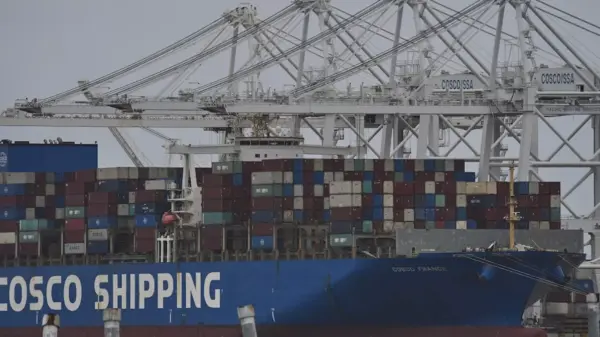Postal services worldwide, including those in Europe and Asia, are preparing to suspend shipments to the United States following the Trump administration’s termination of the de minimis tariff exemption. This policy change, effective from August 29, 2023, eliminates the allowance for international carriers to send goods valued under US$800 without incurring customs duties.
The White House announced the end of the exemption weeks ago, citing concerns about the influx of fentanyl and other illicit drugs entering the country through low-value packages. This decision has significant implications for the global shipping industry, particularly affecting smaller shipments that previously moved freely across borders.
In a statement released on its website, DHL, Europe’s largest shipping provider, confirmed that “Deutsche Post and DHL Parcel Germany will no longer be able to accept and transport parcels and postal items containing goods from business customers destined for the US,” effective immediately. The company emphasized that the restrictions are temporary, necessitated by “new processes required by US authorities for postal shipping, which differ from the previously applicable regulations.”
DHL further noted that key questions remain unanswered, particularly regarding the future collection of customs duties, additional data requirements, and data transmission protocols to US Customs and Border Protection. Other postal services across Europe have echoed similar concerns. Countries like Denmark, Sweden, Italy, Austria, France, and Belgium have announced plans to pause shipments to the US. The UK’s Royal Mail has also temporarily suspended shipments, according to reports from the BBC.
Beyond Europe, postal services in Asia, including Thailand and Singapore, have indicated they will hold off on shipments until clearer guidelines emerge regarding the new rules. “The halt underscores the sweeping disruption caused by President Trump’s decision to eliminate the de minimis threshold,” stated Thailand Post in a public announcement. The previous exemption had allowed millions of small packages from around the world to enter the US without customs duties, facilitating smooth transactions for both consumers and businesses.
In Australia, Australia Post has paused transit on several packages destined for the US. “We have been working hard with US authorities and international partners to adapt our services to meet the new US de minimis requirements,” the Royal Mail confirmed, emphasizing the importance of maintaining service continuity for UK consumers and businesses.
The US had previously ended the de minimis exemption for shipments from China in May 2023. At that time, the White House highlighted concerns that many Chinese-based shippers were using low-value packages to hide illicit substances, including synthetic opioids. According to data from the Financial Times, the volume of de minimis shipments entering the US soared from 134 million in 2015 to 1.34 billion in 2024. This increase has significantly benefited fast fashion companies based in China, such as Temu and Shein, which rely on direct-to-consumer shipping models.
As the situation develops, the full impact on international shipping and cross-border commerce remains to be seen, with many companies and postal services awaiting further clarification from US authorities.






































































